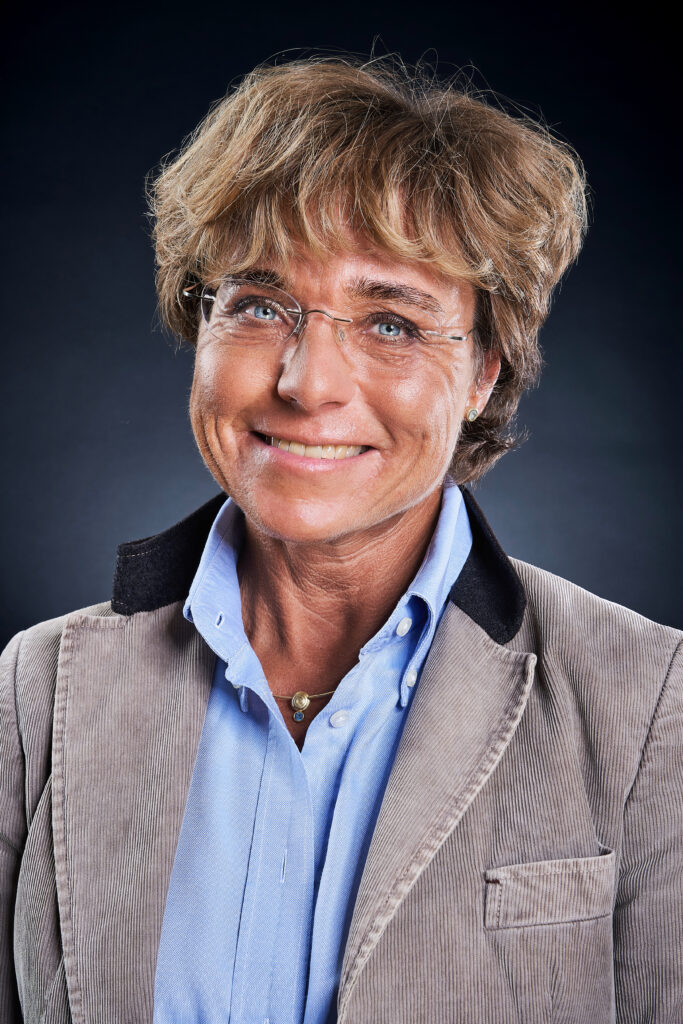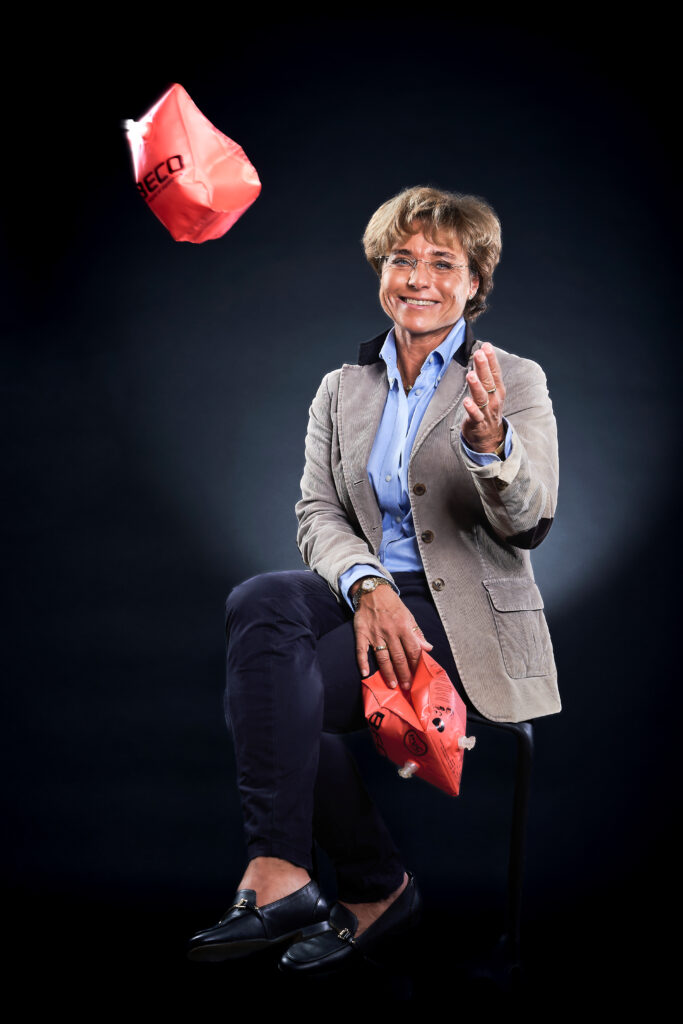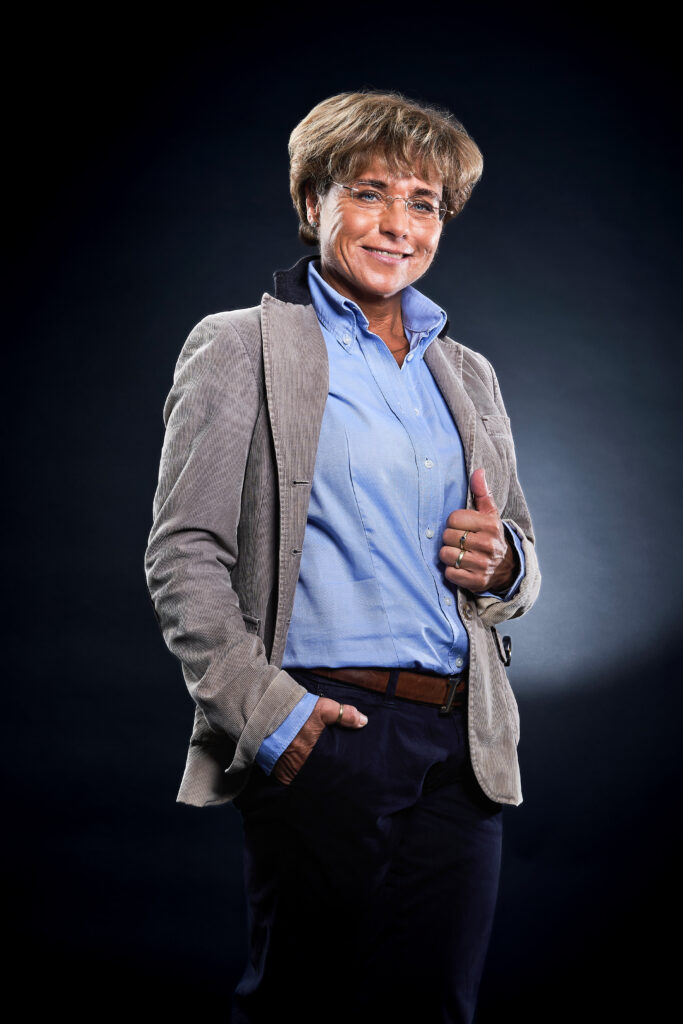There’s no such thing as ‘impossible’ – a portrait of Astrid Steindorf

„Lützerath could still be standing today,“ says Astrid Steindorf, her alert gaze adding emphasis to her statement. At the same time, it looks like she would like to march right into Lützerath and say this sentence again to the face of the RWE bosses and explain what other, more sensible energy production alternatives there are if the world of microorganisms is considered. But even after three blinks of an eye, her gaze still wanders from the second floor of the biology building and sweeps over the botanical garden in Freiburg, which is rather bare at this cold time of year. The latest research publications are displayed in the corridors of the biology department, while all sorts of apparatuses in the laboratories shake solutions, centrifuge them or keep them at a constant temperature between -80° and +75°.
At this facility, basic research is carried out on the archaea, the tiny organisms representing one of the three domains of cellular living organisms alongside bacteria and eukaryotes (eukaryotes include plants, animals and fungi). Astrid Steindorf has been organizing this microbiology laboratory for thirty years. She keeps this equipment running, makes sure that the infrastructure for research is fully functional, and actively participates in it herself. Over the years, her long experience of researching microorganisms has led her to dream of combining her diverse knowledge of technologies but also of tiny living organisms.
Together with a colleague, she is working to further develop an alternative to coal mining, namely hydrothermal carbonization (HTC). The process was developed 100 years ago by German chemist and Nobel laureate Friedrich Bergius: when pressure is applied to organic waste, many components are created, including synthetic fuels. According to Steindorf, the pressure necessary for the HTC process could be achieved through a clever choice of location. Former mining tunnels provide the depth needed for the required pressure and an above-ground infrastructure just waiting to be used in a new context. The expansion of the HTC process, that is, reusing supposed waste products such as wastewater, would be particularly appealing in today’s era as Steindorf suggests. Energy and new products can be created from bio waste by archaea, purple bacteria, cyanobacteria and other microorganisms, and make a major contribution to the necessary CO2 reduction. Connected insect farms as well as algae and moss production plants could use this energy to produce food and pharmaceutical products while providing further biomass. Until such an HTC process can be taken into operation, many question marks still need to be answered. Steindorf, however, is sure that she will continue to work on this vision in accordance with her life motto, „There’s no such thing as ‘impossible’“, and will campaign for social and political change.
The medical technical assistant is the linchpin of the laboratory, combining technical experience and clarity with sensitivity for cooperation. With a smile, she says that she has been known among the students as „Floaty Astrid“ since the pandemic. The name emerged as a reaction to a video in which Steindorf put on floaties to teach sterile work – clean laboratory work is a question of posture after all. When imparting knowledge, it is always important to her to engage with the students and their needs; only then can the person experience real success in learning.
Steindorf practices being attentive and respectful to people not only in the lab and in her contact with students, but also as a Reiki master, a Japanese healing method that has accompanied her for decades. She takes the fact, that people call her the „lab mom“ as a consequence, with good humour. However, when she gets to talking about structural forms of discrimination in science, her face turns serious. „Science must not be dominated by old structures, and the compatibility of career and family must be improved, especially for women.“ She takes a stand for these issues and works to give a voice to science-supporting groups, both at the faculty level and as a senator in the university’s highest elected body. Just as with energy supply, there is a lot of work to be done here. And, as with every issue that Astrid Steindorf tackles, she always strives to involve as many colleagues as possible in this work as well.


Portrait by Anne Schiffers
Anne is studying Liberal Arts and Sciences with a focus on Cultural Studies and History at the University College Freiburg. She is particularly interested in the intersection of knowledge, technology, and society, as well as political philosophy, and combines this with a variety of topics, ranging from fungi to feminism. Before the pandemic, a European Voluntary Service took her to Estonia, where she not only explored the comically beautiful language Estonian, but also got to know and appreciate working with people with disabilities. In her free time, she dances at the Theatre Freiburg in the intergenerational amateur company SOLD (school of life and dance) and likes to explore nature with climbing shoes and touring skis on her feet.